Books
Books
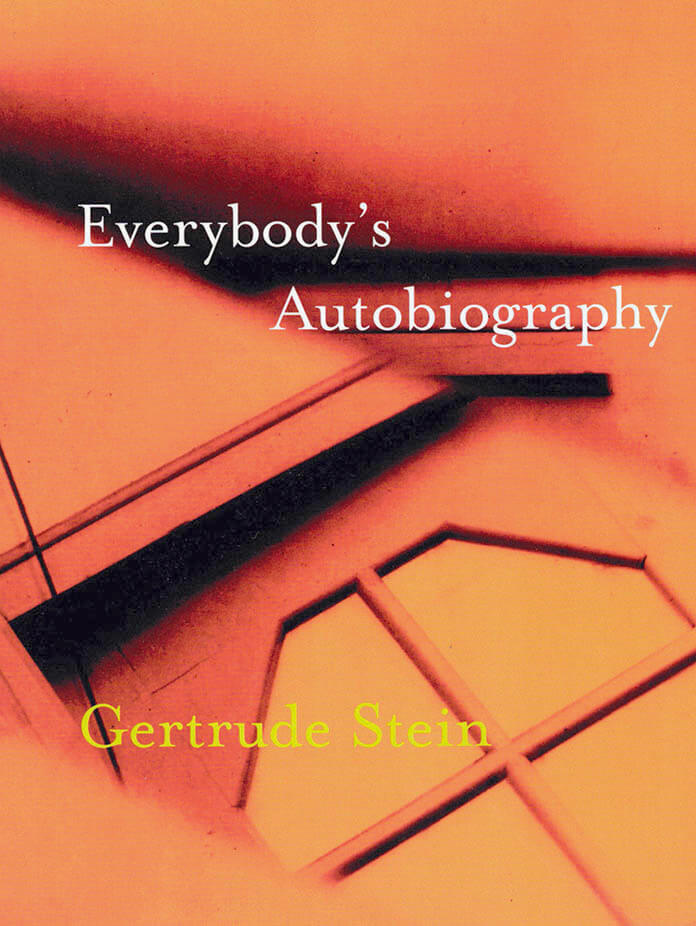
Everybody's Autobiography
In 1937, Gertrude Stein wrote a sequel to The Autobiography of Alice B. Toklas, but this darker and more complex work was long misunderstood and neglected. An account of her experiences in the wake of having authored a bestseller, Everybody's Autobiography is as funny and engaging as The Autobiography of Alice B. Toklas, but it is also a meditation on the meaning of success and identity in America.
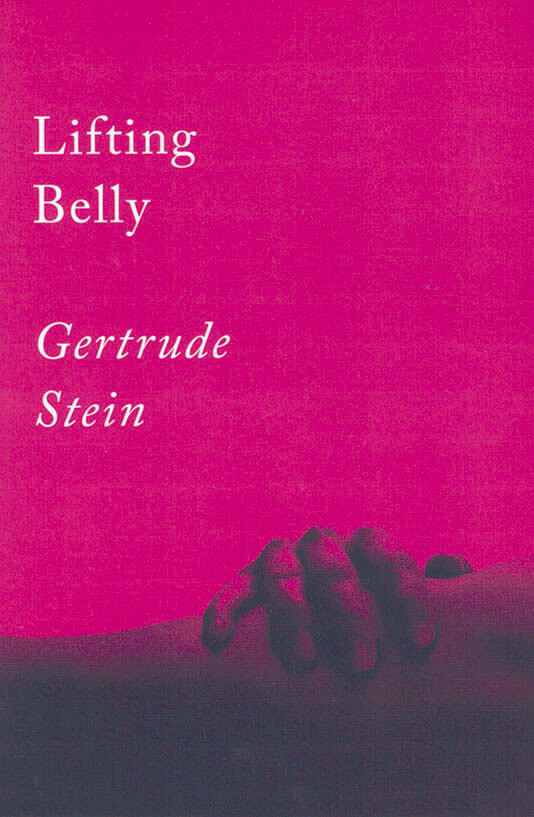
Lifting Belly: An Erotic Poem
Often considered the central erotic work of Stein's middle period, this love poem written to her longtime companion, Alice B. Toklas, reveals a vulnerability and tenderness unexpected of one so famous for caustic wit. Associative in structure, the work consists of alternately cryptic and conversational fragments detailing a shared domestic life. A very brief initial section observes the hardships of gay estrangement from society, while the body of the work applauds the decision to endure these for love's sake. Readers will welcome an unusual view of Stein in this work in which lifting belly, signifying sexual union, comes to imply passionate commitment to another and acceptance of oneself.
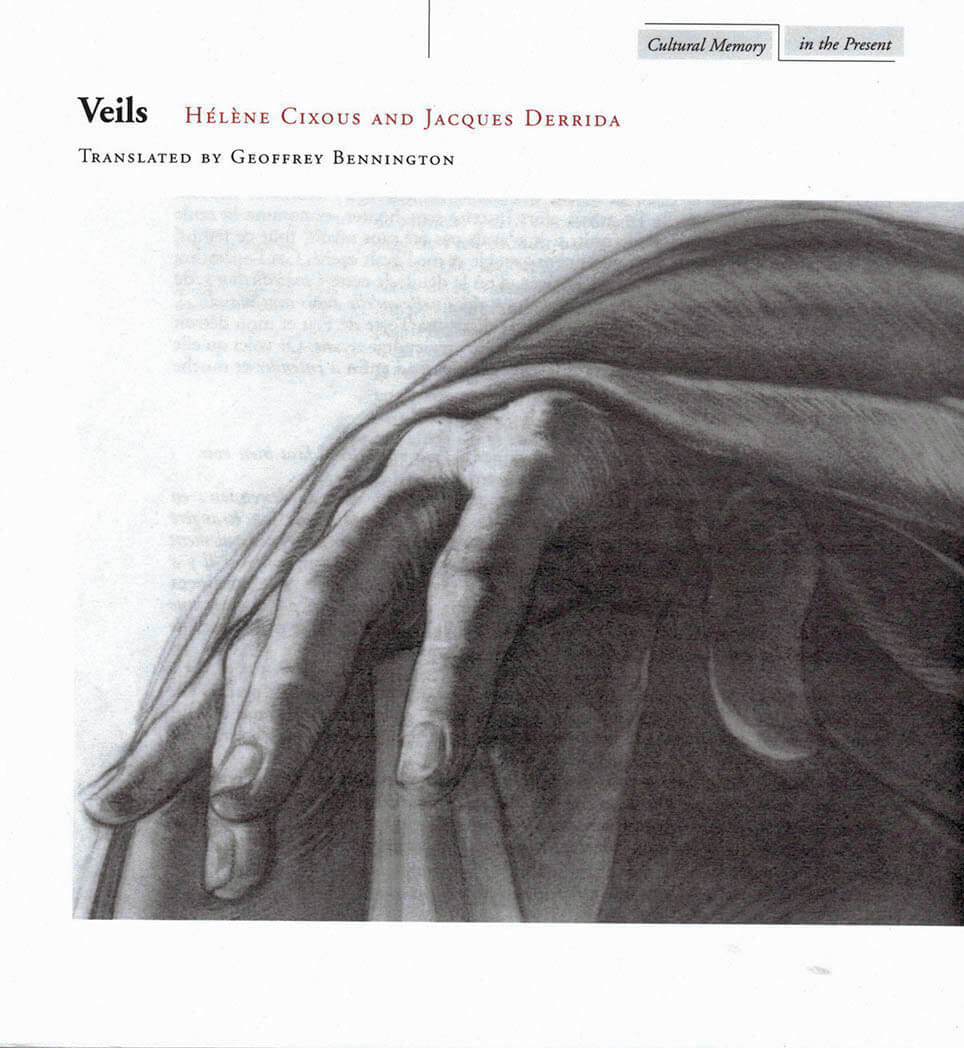
Veils
Hélène Cixous, Jacques Derrida
This book combines loosely "autobiographical" texts by two of the most influential French intellectuals of our time. "Savoir," by Hélène Cixous is an account of her experience of recovered sight after a lifetime of severe myopia; Jacques Derrida's "A Silkworm of One's Own" muses on a host of motifs, including his varied responses to "Savoir."
Hélène Cixous is Professor of Literature and Director of the Centre d'Etudes Feminines, Paris VIII. Jacques Derrida is Director of Studies at the Ecole des Hautes Etudes en Sciences Sociales, Paris, and Professor of Humanities at the University of California, Irvine. Stanford has published nine of his books, most recently Of Hospitality, which also includes a text by Anne Dufourmantelle (Stanford, 20
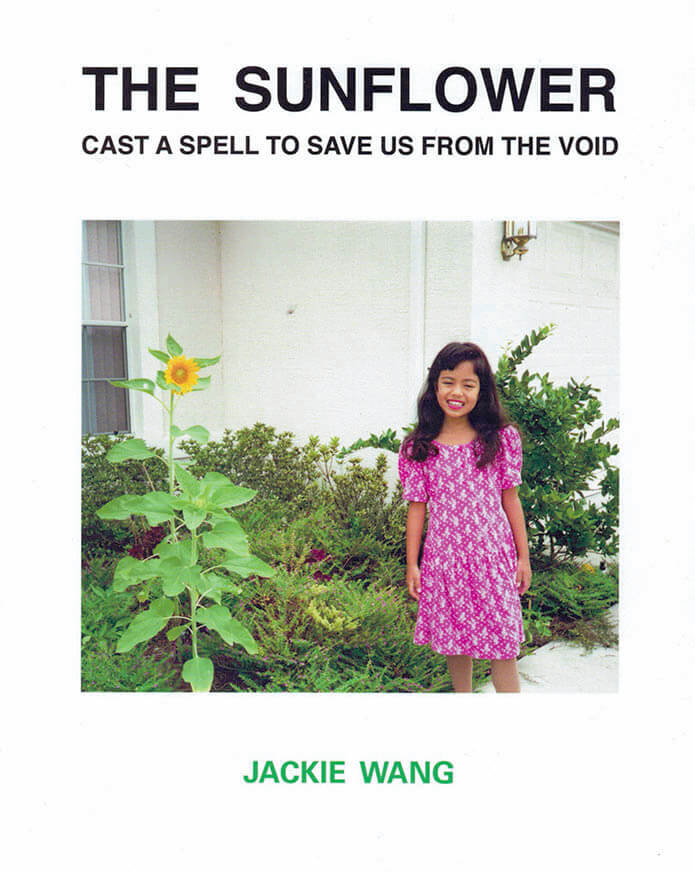
The Sunflower
Jackie Wang's magnetic and spellbinding debut collection of poetry that attempts to speak in the language of dreams.
The poems in The Sunflower Cast A Spell To Save Us From The Void read like dispatches from the dream world, with Jackie Wang acting as our trusted comrade reporting across time and space. By sharing her personal index of dreams with its scenes of solidarity and resilience, interpersonal conflict and outlaw jouissance, Wang embodies historical trauma and communal memory. Here, the all-too-familiar interplay between crisis and resistance becomes first distorted, then clarified and refreshed. With a light touch and invigorating sense of humor, Wang illustrates the social dimension of dreams and their ability to inform and reshape the dreamer's waking world with renewed energy and insight.
Jackie Wang is a student of the dream state, black studies scholar, prison abolitionist, poet, performer, library rat, trauma monster and PhD candidate in the Department of African and African American Studies at Harvard University, specializing in race and the political economy of prisons and police in the United States. She is the author of a number of punk zines including On Being Hard Femme, as well as a collection of dream poems titled Tiny Spelunker of the Oneiro-Womb. In 2018 she published a book, titled Carceral Capitalism on the racial, economic, political, legal, and technological dimensions of the US carceral state. She is currently an Arleen Carlson and Edna Nelson Graduate Fellow at the Radcliffe Institute for Advanced Study.
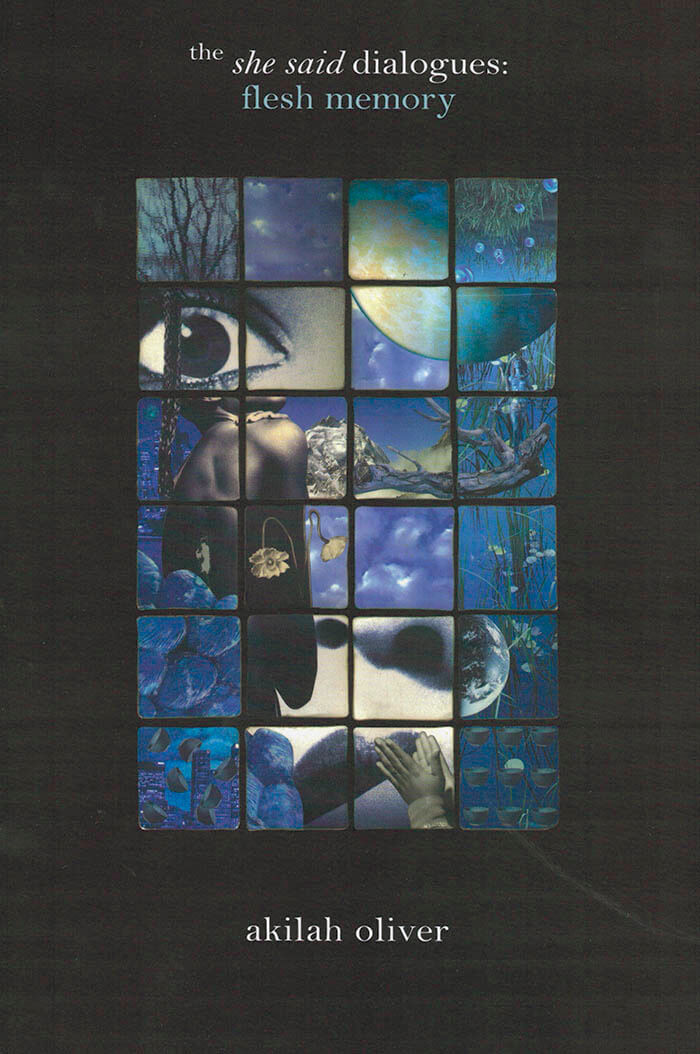
the she said dialogues
A reprint of the intersectional black feminist classic by the late poet and performer Akilah Oliver.
In her original author's note to the 1999 edition, Akilah Oliver writes,"What I am trying to do in these poems is investigate the non-linear synapses between desire, memory, blackness (as both a personal identity and a non-essentialist historical notion), sexuality and language." the she said dialogues: flesh memory proves to be not only still timely twenty years later, but essential reading for understanding intersectional politics and poetics in our current moment.
Akilah Oliver was born in St. Louis and grew up in Los Angeles. She was the author of two books of poetry: A Toast in the House of Friends (2009) and the she said dialogues: flesh memory (1999), which received a PEN Beyond Margins award. Her chapbooks include A Collection of Objects (2010), a(A)ugust (2007), The Putterer's Notebook (2006), and An Arriving Guard of Angels, Thusly Coming to Greet (2004). Oliver collaborated with a range of artists and musicians, such Tyler Burba, Anne Waldman, and Rasul Siddik; a notable performer, Oliver founded the feminist performance collective Sacred Naked Nature Girls in the 1990s. She was a member of the Belladonna* collaborative and a PhD candidate at the European Graduate School.
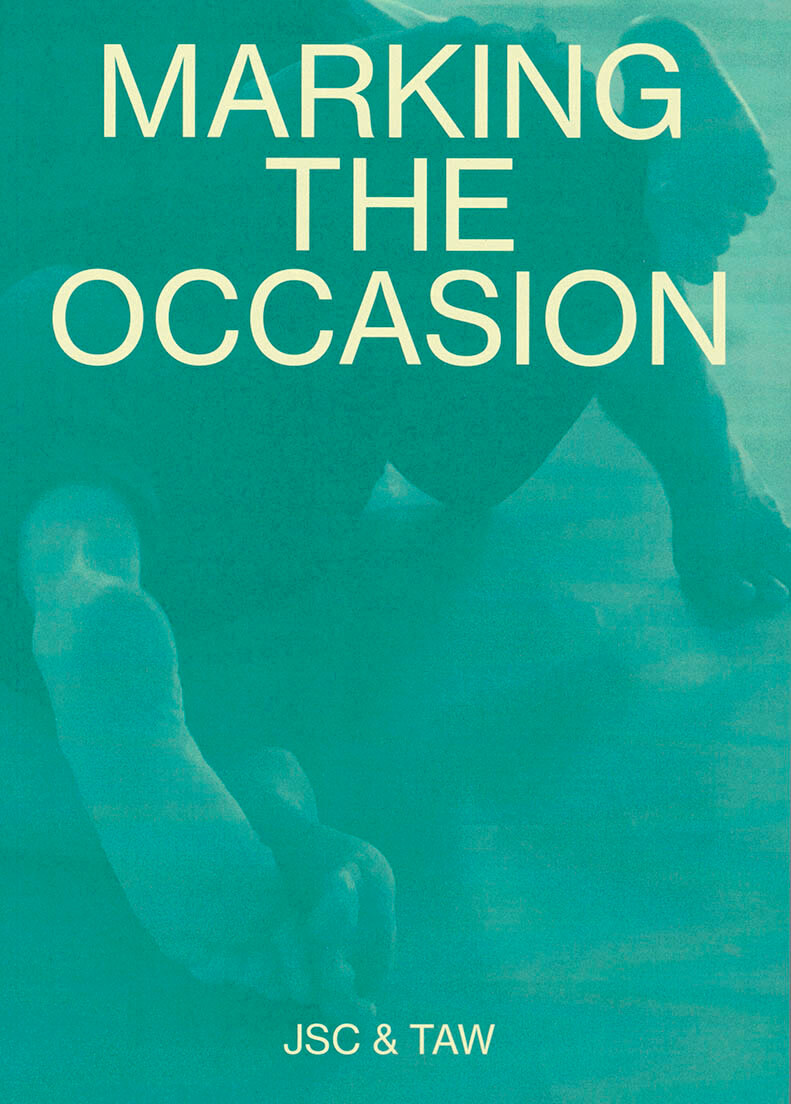
Marking The Occasion
Jaime Shearn Coan, Tara Aisha Willis
Marking The Occasion represents the final movement in a year-long engagement with the question, Can a performance be a rough draft of a written work? In this case, the rough draft took place at Mount Tremper Arts during a 2019 Watershed Residency.
Taking the practices of choreography and co-writing as methods of investigation, curator-editors Jaime Shearn Coan and Tara Aisha Willis introduce new trajectories for live work and text by bringing together dance and performance artists from across the US who occupy multiple roles within art economies and in whose work language and writing are prevalent.
Exploring a multiplicity of lived, embodied experiences within a single event, Marking The Occasion gathers together archival materials from the residency alongside new contributions from participants David Thomson, Julie Tolentino, Mariana Valencia, Takahiro Yamamoto, and Mlondi Zondi.
The publication also marks the events of 2020, and traces their reverberations through each artist's practice as time, movement, action, and collaboration take on new meanings.
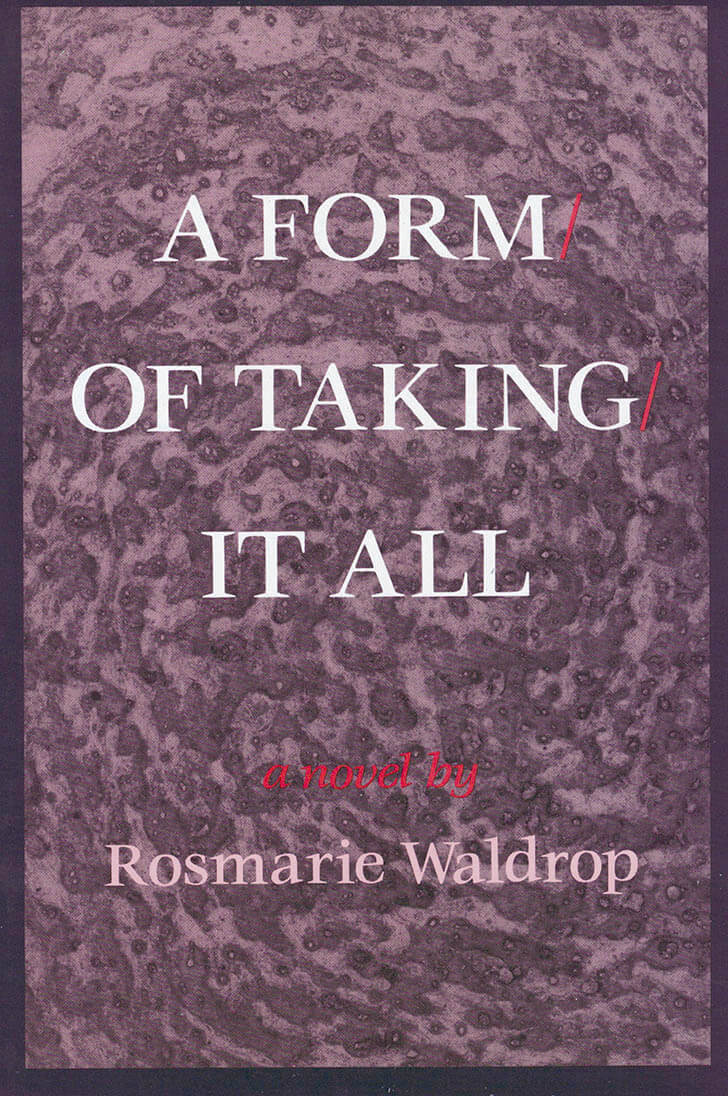
A Form of Taking It All
Just as the discovery of America in the fifteenth century forever altered the way Europeans viewed the world, so too did the theories of relativity and quantum physics radically alter the twentieth-century vision of the universe. Both encounters with otherness, on both a global and personal level, form the crux of Rosmarie Waldrop's extraordinary novel.
The story roams the political worlds of old Mexico and Washington, D.C., and goes on to fuse the two great perceptual revolutions of the fifteenth and twentieth centuries—so that it is Columbus, in her fiction, who discovers the unpredicted particles of the new quantum physics.
Waldrop's brilliant narrative shifts from stream of consciousness to first-person narration to poetry, in a unique meditation on love and politics, conquest and tolerance, and the effects of change.

Flatland: A Romance of Many Dimensions
Flatland: A Romance of Many Dimensions is an 1884 satirical novella by the English schoolmaster Edwin Abbott Abbott. Writing pseudonymously as "A Square," the book used the fictional two-dimensional world of Flatland to offer pointed observations on the social hierarchy of Victorian culture. However, the novella's more enduring contribution is its examination of dimensions.
Several films have been made from the story, including a feature film in 2007 called Flatland. Other efforts have been short or experimental films, including one narrated by Dudley Moore and the short films Flatland: The Movie and Flatland 2: Sphereland starring Martin Sheen and Kristen Bell.

The Fluid Computer
2 side long pieces and a selection of 35mm slides printed on a lush 30 by 30 cm format give an alternative for popular myths “our memory is a tape recorder” and “the exact photographic memory”. When we take time to listen inside own heads, what appears might be closer to the double exposed images and swirling tape manipulations then we imagine.
This music and these pictures are made out of curiosity about how multiple images overlap on film and how waves that arise in tiny electronic circuits translate to the outside world.
Whooshing echoes out of homemade musical circuits and acoustic recordings processed through configuration of tape recorders mix the same way as the colors in the layered images.

The Body Will Thrive
The book groups Lore Stessel's photographic research on dance and movement of the past six year. It can be read as a choreography in which the rhythm of the dance is accompanied by the pace of turning each page.
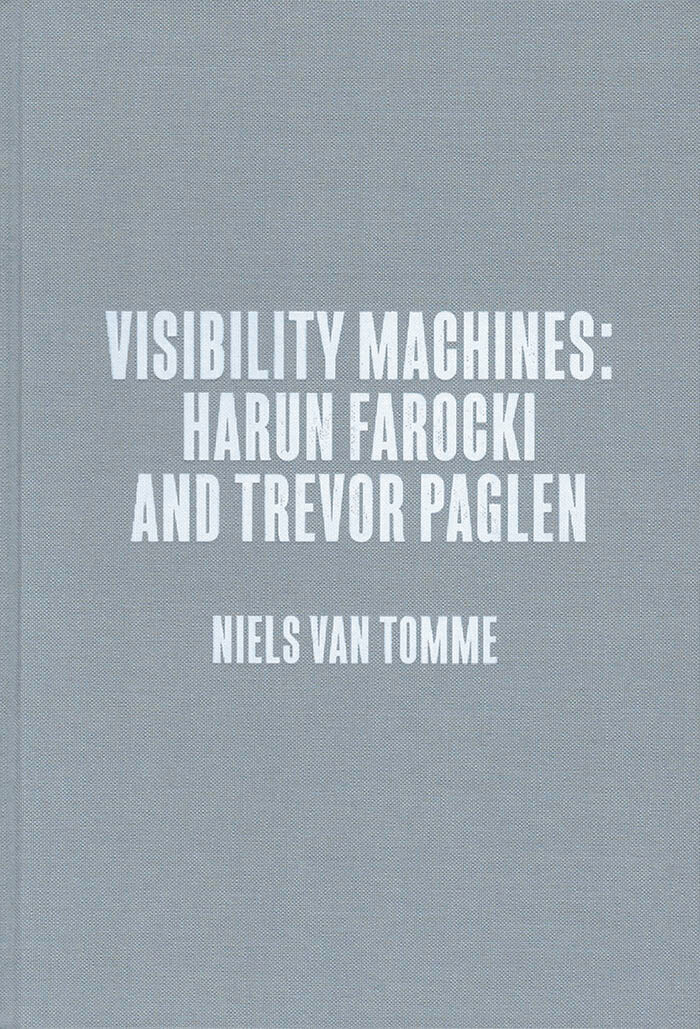
Center for Art, Design and Visual Culture
Visibility Machines: Harun Farocki and Trevor Paglen
Visibility Machines explores the unique roles that German filmmaker, video artist and author Harun Farocki (1944-2014) and American artist and author Trevor Paglen (born 1974) play as meticulous observers of global military operations. Investigating forms of surveillance, espionage and weaponry, Farocki and Paglen both examine the ways in which military activities transform and politicize our relationship to images and the realities they appear to represent.
The publication contains a number of newly commissioned essays by esteemed scholars who approach the work from diverse thematic perspectives, in addition to texts by Farocki and Paglen, as well as three exclusive visual essays exploring themes emerging from a dialogue between their work.

Postcapitalist Desire: The Final Lectures
A collection of transcripts from Mark Fisher’s final series of lectures at Goldsmiths, University of London, in late 2016.
Edited and with an introduction by Matt Colquhoun, this collection of lecture notes and transcriptions reveals acclaimed writer and blogger Mark Fisher in his element — the classroom — outlining a project that Fisher’s death left so bittersweetly unfinished.
Beginning with that most fundamental of questions — “Do we really want what we say we want?” — Fisher explores the relationship between desire and capitalism, and wonders what new forms of desire we might still excavate from the past, present, and future. From the emergence and failure of the counterculture in the 1970s to the continued development of his left-accelerationist line of thinking, this volume charts a tragically interrupted course for thinking about the raising of a new kind of consciousness, and the cultural and political implications of doing so.
For Fisher, this process of consciousness raising was always, fundamentally, psychedelic — just not in the way that we might think…
Edited by Matt Colquhoun
Published 2021

plot twist ii
plot twist ii is a collection of 11 essays and short stories from the hosts of plot twist’s 2019 - 2020 programme of reading groups and workshops. It includes meditations on privacy, work, and failure; a sci-fi tale in four acts; a story on dizziness and giddiness; two essays on the cultural politics of disgust; and a musing on the peculiar ways language and words stay with us, lodged for a lifetime in our memories. also included are the full reading lists from the year’s programme, and a limited edition riso printed poster (A3) by Lucie de Bréchard (@journal2bor). plot twist is a literary collective, reading group, and experiment in self-organised learning, founded in 2018 by Jo Kali and Georgie Sinclair. plot twist ii is their second publishing project.
Contributions from Andreea Breazu, Angelica Sgouros, Elisa Grasso, Georgie Sinclair, Jo Kali, Juliette Lizotte, Loren Ewart, Lucia Dove, Naomi Credé, Rosie Haward and Sarah Eskens. Designed by Juliette Lizotte and Lucie de Bréchard.
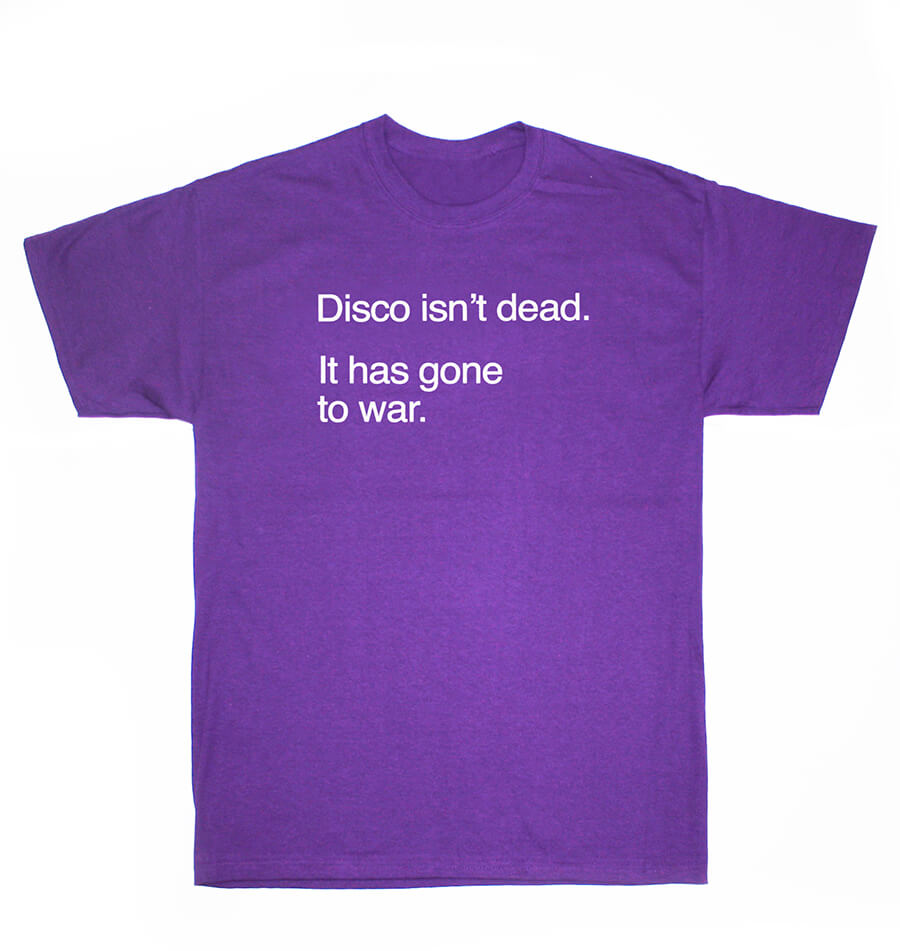
Tony Cokes Edition
On the occasion of Tony Cokes' solo-exhibition, ARGOS produced a unique purple t-shirt with silver lettering. 100% cotton; 180 grams. Silkscreen by Bootlegz in Brussels.
Available in XL (XS, S, M and L are sold out)
Edition of 100
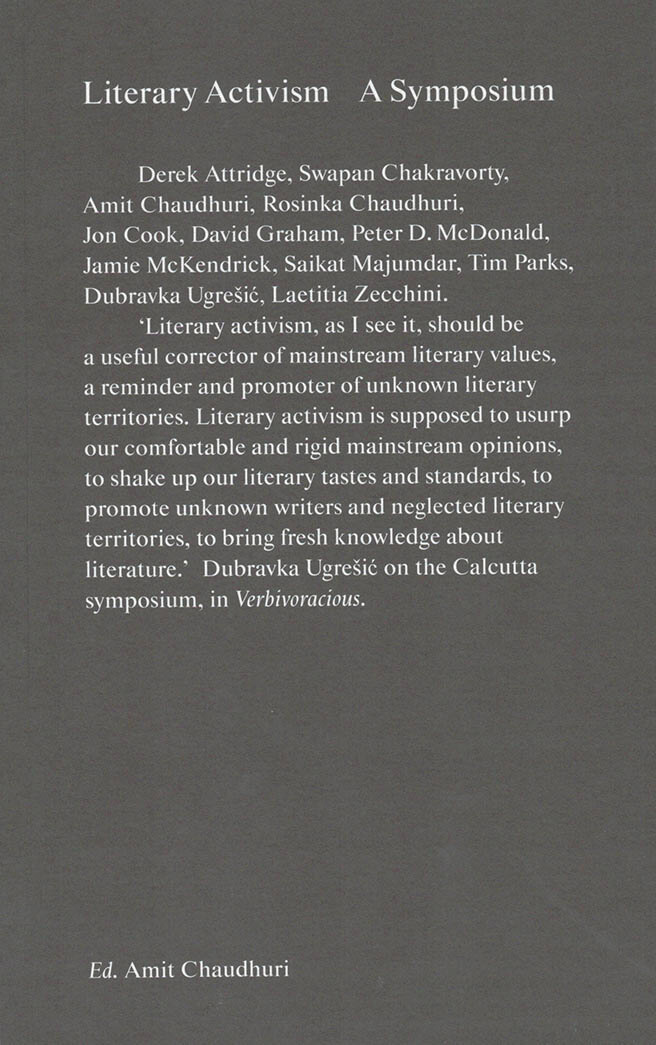
Literary Activism
Literary Activism – activism that revisits and interrogates an idea of literature – emerges from a radically altered landscape for both publishing and academia, where market pressures are effecting changes – on language, on the measuring of value, on the concept of influence – we might struggle to recognise.
Taking in the roles of writer, critic, translator, academic and publisher, the essays in this volume follow no single line of enquiry. Rather, they offer the beginnings of an analysis of the literary world at a certain moment of globalization, while also questioning whether a literary world exists and, if it does, where its boundaries lie.
The collection moves in many directions – from Arun Kolatkar and his near-heroic refusal of both market place and reputation; to Derek Attridge, who argues for a form of affirmative criticism which positions the critic as a ‘lover of the text’; while, from Amsterdam, Dubravka Ugrešić reflects on life in a literary ‘out of nation zone’, adrift in a territory where intellectual protest has been stripped of ideological impetus and subsumed by the voraciousness of the market.
Taken together, these essays initiate a series of conversations about who reads what and why, about the practice of writing and criticism at this particular contemporary moment, and about the activities and institutions that shape an understanding of what literature is and what it can do.
Literary Activism, edited by Amit Chaudhuri, features writing from Derek Attridge, Tim Parks, Dubravka Ugrešić, Laetitia Zecchini, Peter D. Macdonald, Saikat Majumdar, Jamie McKendrick, and Swapan Chakravorty, with an afterword by Jon Cook.

Steve Paxton: Drafting Interior Techniques
This book was published on the occasion of the exhibition Steve Paxton / Drafting Interior Techniques, a retrospective exhibition, in Culturgest, Lisbon, March-July 2019, co-curated by Joao Fiadeiro and Romain Bigé.
American dancer, choreographer and improviser Steve Paxton (b. 1938) has continuously been shaping the face of dance for more than six decades. Starting his dance career in the 1950s, he danced with José Limon and the Cunningham company, contributed to found the Judson Dance Theater and post-modern dance, invented two dance techniques (Contact Improvisation and Material for the Spine), while writing extensively about movement (more than a hundred articles since 1970) and relentlessly performing improvisation around the world.
Drafting Interior Techniques is the first retrospective look taken at his work and legacy. It is built around one of Steve’s obsessive questions: what is my body doing when I am not conscious of it? This question is a mantra through the exhibition, which offers the visitors to wander into the dancer’s workshop, not only to see dance, but to look at movement with the eyes of a dancer.
Contributions: Delfim Sardo, Romain Bigé, João Fiadeiro, Julie Perrin, Daniel Lepkoff, Bojana Cvejić, Alice Godfroy, Nancy Stark Smith, Hubert Godard, André Lepecki Yvonne Rainer, Martin Nachbar, Ramsay Burt, Bebe Miller, Patricia Kuypers.

Index of Operational and Code Names
Le titre du livre « Index of operational and code names » reprend l'intitulé d'un document trouvé sur Internet constitué d'une liste de 437 mots anglais classés par ordre alphabétique et accompagnés de brèves indications concernant les opérations militaires pour lesquelles ces mots ont servi de noms de code.
Ce document a inspiré à Diane Guyot la série « Index War » réalisée selon un protocole simple consistant à produire un dessin pour chaque mot de la liste.
Composé de 86 dessins issus de cette série, certains reproduits pour le support du livre, d'autres présentés au sein d'un cahier photographique tels qu'ils sont aujourd'hui accrochés dans les intérieurs de leurs propriétaires, et d'une partie textuelle placée en fin de volume qui restitue l'intégralité du document source, le livre, comme le suggère la mention volume 1 qui accompagne son titre, ne marque pas le point d'achèvement de l'œuvre mais témoigne au contraire d'un processus en cours.
L'articulation des composantes de l'œuvre dans l'espace du livre en constitue en mème temps une nouvelle version, à la fois spécifique et autonome. L'activation du dispositif codex/index invite le lecteur à une méditation sur la notion de code, où s'entrecroisent sémiotique de l'image, technique de propagande et technologie de l'information.
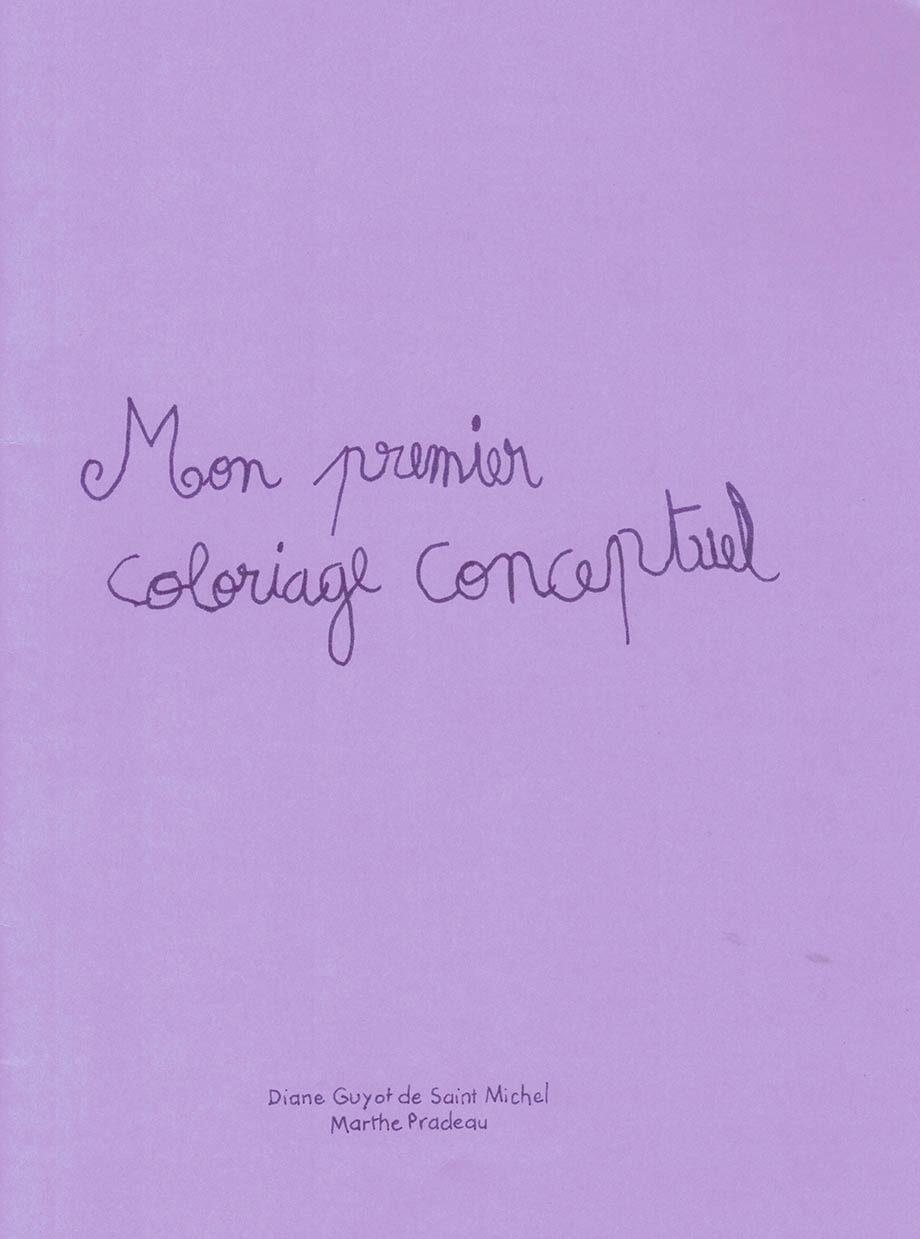
Mon premier coloriage conceptuel
Diane Guyot de Saint Michel, Marthe Pradeau
Mon premier coloriage conceptuel is the first ever conceptual coloring book in the history of the world, until we find evidente to the contrary. For Immixtion Books, publishing this book is both an honor and a form of tribute to a little interactive drawing book titled "Toi par Lui et moi" [You by Him and Me] conceived by Robert Filiou in 1975. Mon premier coloriage conceptuel is the result of a joyful collaboration between Diane Guyot de Saint Michel and Marthe Pradeau.
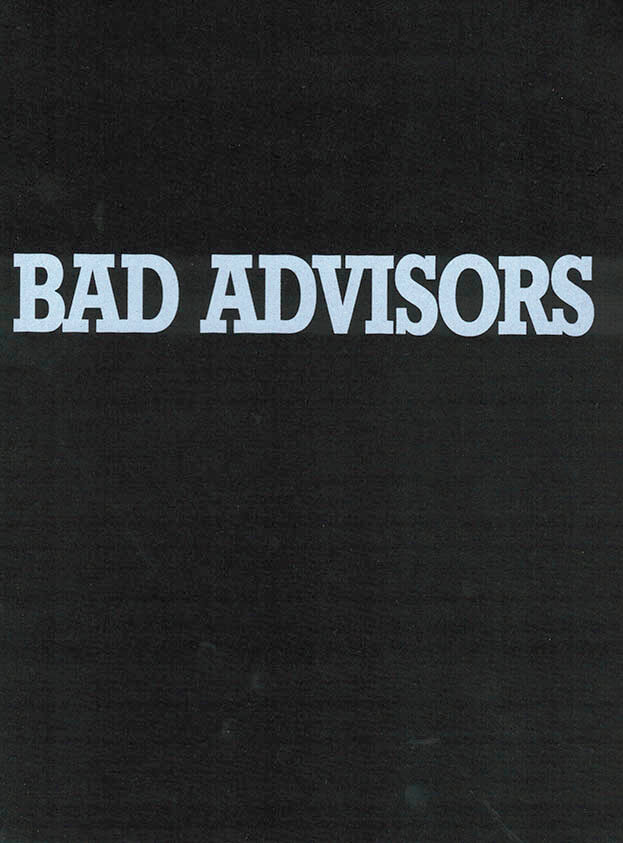
Bad Advisors - English Landscapes
Bad Advisors compiles recent texts with pictures of flowers from the street and public gardens taken in Paris during spring 2017. Mourning is an empty box with an excessive syntax. A rose does not allude to anything except its own existence. But you feel, brushing within its range, a bit more complete, which means the sensation is an apparition from nothing. The rose is an empty box with an excessive syntax. English Landscapes contains a series of white-on-black i-phone touch drawings of hay bales; a circular form that replicates across UK agricultural zones in late summer. The books are a pair.
This book is part of the www.anywhereoutofthebook.com series
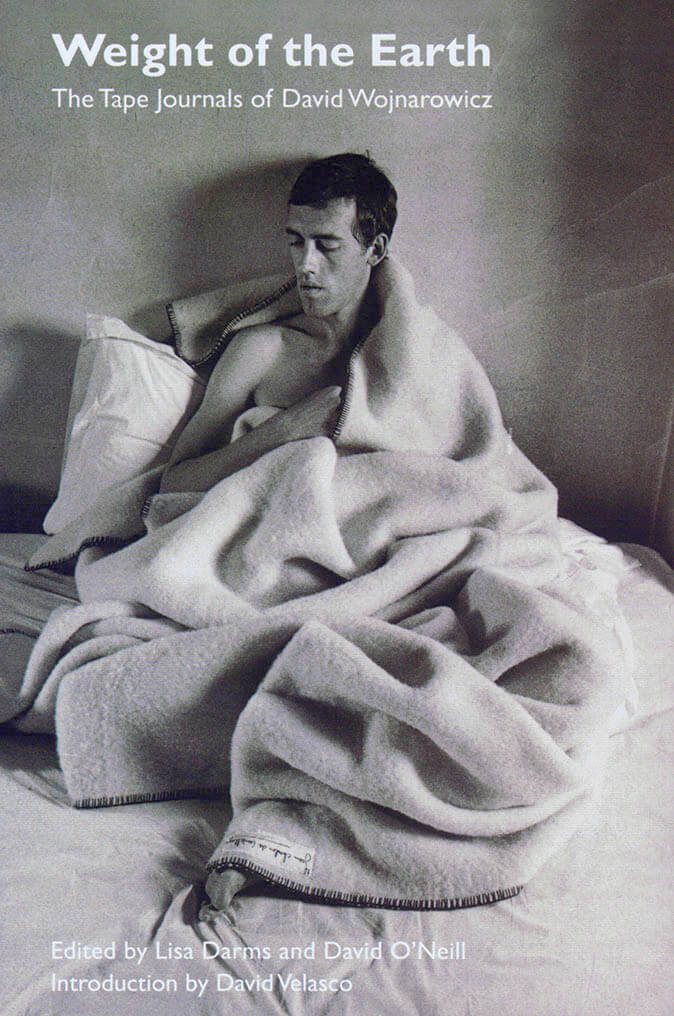
The Weight of the Earth
Audio journals that document Wojnarowicz's turbulent attempts to understand his anxieties and passions, and tracking his thoughts as they develop in real time.In these moments I hate language. I hate what words are like, I hate the idea of putting these preformed gestures on the tip of my tongue, or through my lips, or through the inside of my mouth, forming sounds to approximate something that's like a cyclone, or something that's like a flood, or something that's like a weather system that's out of control, that's dangerous, or alarming.... It just seems like sounds that have been uttered back and forth maybe now over centuries. And it always boils down to the same meaning within those sounds, unless you're more intense uttering them, or you precede them or accompany them with certain forms of violence.
—from The Weight of the Earth
Artist, writer, and activist David Wojnarowicz (1954-1992) was an important figure in the downtown New York art scene. His art was preoccupied with sex, death, violence, and the limitations of language. At the height of the AIDS epidemic, Wojnarowicz began keeping audio journals, returning to a practice he'd begun in his youth.The Weight of the Earth presents transcripts of these tapes, documenting Wojnarowicz's turbulent attempts to understand his anxieties and passions, and tracking his thoughts as they develop in real time.
In these taped diaries, Wojnarowicz talks about his frustrations with the art world, recounts his dreams, and describes his rage, fear, and confusion about his HIV diagnosis. Primarily spanning the years 1987 and 1989, recorded as Wojnarowicz took solitary road trips around the United States or ruminated in his New York loft, the audio journals are an intimate and affecting record of an artist facing death. By turns despairing, funny, exalted, and angry, this volume covers a period largely missing from Wojnarowicz's written journals, providing us with an essential new record of a singular American voice.
Published 2018

I Remember
Joe Brainard's I Remember is a literary and artistic cult classic, praised and admired by writers from Paul Auster to John Ashery and Edmund White. As autobiography, Brainard's method was brilliantly simple: to set down specific memories as they rose to the surface of his consciousness, each prefaced by the refrain "I remember": "I remember when I thought that if you did anything bad, policemen would put you in jail."
Brainard's enduring gem of a book has been issued in various forms over the past thirty years. In 1970, Angel Hair books published the first edition of I Remember, which quickly sold out; he wrote two subsequent volumes for Angel Hair, More I Remember (1972) and More I Remember More (1973), both of which proved as popular as the original. In 1973, the Museum of Modern Art in New York published Brainard's I Remember Christmas, a new text for which he also contributed a cover design and four drawings. Excerpts from the Angel Hair editions appeared in Interview, Gay Sunshine, The World and the New York Herald. Then in 1975, Full Court Press issued a revised version collecting all three of the Angel Hair volumes and added new material, using the original title I Remember. This complete edition is prefaced by poet and translator Ron Padgett.
Published 2001
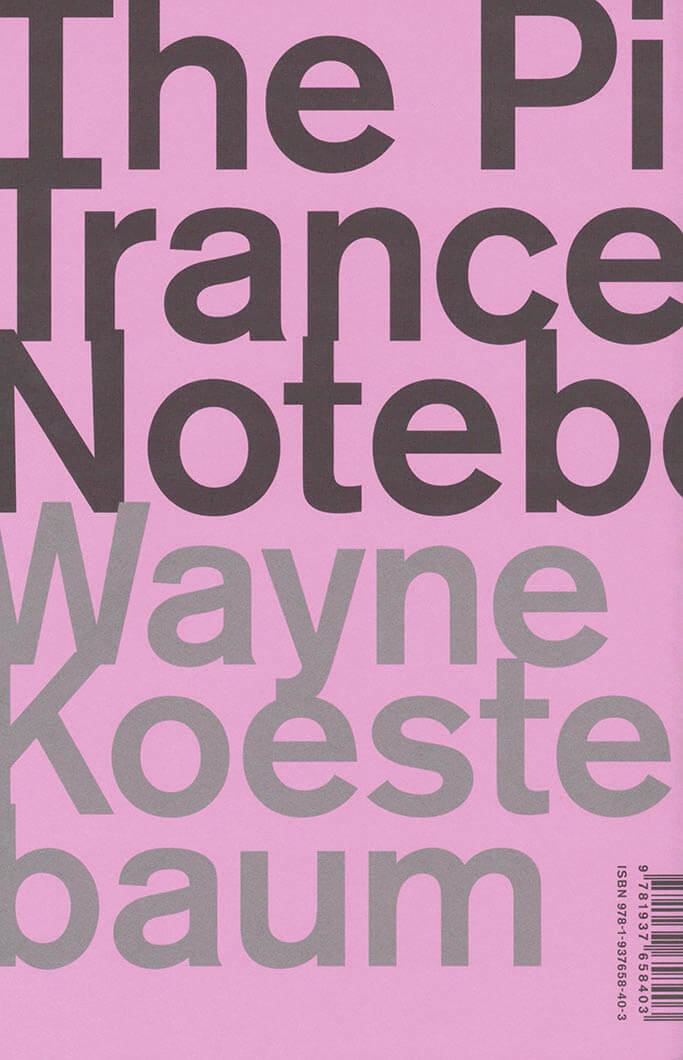
The Pink Trance Notebooks
The Pink Trance Notebooks is the product of the year Wayne Koestenbaum stopped keeping the traditional journal he had maintained for three decades and began a series of "trance notebooks" as a way to reflect an intensified, unmoored consciousness. The resulting sequence of 34 assemblages reflects Koestenbaum's unfettered musings, findings, and obsessions. Freed from the conventions of prose, this concatenation of the author's intimate observations and desires lets loose a poetics of ecstatic praxis—voiced with aplomb and always on point.
"Wayne Koestenbaum is one of the most original and relentlessly obsessed cultural spies writing today. His alarmingly focused attention to detail goes beyond lunacy into hilarious and brilliant clarity." —John Waters
WAYNE KOESTENBAUM is a poet and cultural critic. His recent books include My 1980s & Other Essays, Humiliation, The Anatomy of Harpo Marx, and the poetry collection Blue Stranger with Mosaic Background. He lives in New York City.
Published 2015.

The Cow
This text is filthy and fertilized, filling and emptying, filling and emptying, atrocious and politic with meaning. The Cow is a mother, a lover, and a murdered lump of meat, rendered in the strongest of languages. I cannot count the altering that happens in the very large rooms that are the guts of her.
To call Ariana Reines’ poetry scatological doesn’t even scratch the surface. “I COULD BE A DIAPER FOR THE DAY’S RESIDUALS,” she writes, and, “She clasped the event to her and proceeded. Fucked her steaming/ eyehole and ended it.” The Cow is a body in the way that texts are bodied—”Are you so intelligent your body doesn’t have you in it.”—but not in the way that allows the text to become desensitized, depersonalized, sterilized.
Winner of the 2006 Alberta Prize

The Undying (paperback)
Blending memoir with critique, an award-winning poet and essayist's devastating exploration of sickness and health, cancer and the cancer industry, in the modern world
A week after her 41st birthday, Anne Boyer was diagnosed with highly aggressive triple-negative breast cancer. For a single mother living payslip to payslip, the condition was both a crisis and an initiation into new ideas about mortality and the gendered politics of illness.
In The Undying - at once her harrowing memoir of survival, and a 21st-century Illness as Metaphor - Boyer draws on sources from ancient Roman dream diarists to cancer vloggers to explore the experience of illness. She investigates the quackeries, casualties and ecological costs of cancer under capitalism, and dives into the long line of women writing about their own illnesses and deaths, among them Audre Lorde, Kathy Acker and Susan Sontag.
Genre-bending, devastating and profoundly humane, The Undying is an unmissably insightful meditation on cancer, the cancer industry and the sicknesses and glories of contemporary life.
Winner of The Pulitzer Prize for Nonfiction 2020; Windham Campbell Prize for Nonfiction 2020